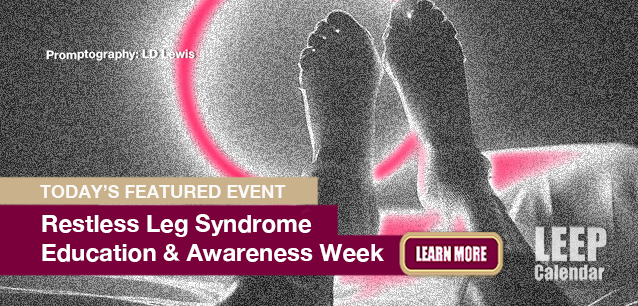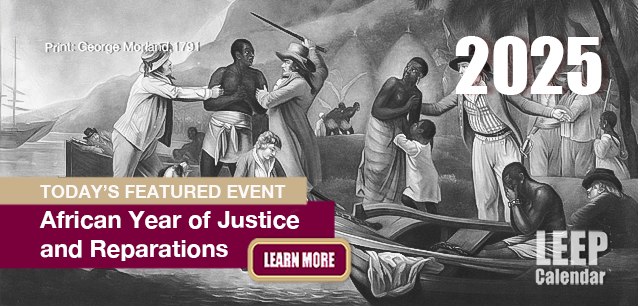 AD
AD
Today is: July 24
Scroll to explore events active on this date.
Additional Events on LEEP
LEEP INK FEATURES

May Blooms: Events in May 2025
Along with October, May is one of the most densely packed months of the year. It's before the summer humidity and the last whole month of the school year. The weather is warming in t...

Sweet June 2025
The solstice on the 20th marks the onset of summer (Northern Hemisphere) or winter (Southern Hemisphere). Many people, particularly in Europe, North America and Asia, will be embarking o...

Events in April 2025
Spring has sprung in the north, and the first hints of Autumn are on the horizon in the south. April is the month spring (or fall) gets underway, and it is filled with religious celebrations, including the Mu...
About Arab American Voter Registration Day
Civil Rights , United States
Ends: Oct 13, 2022
DESCRIPTION:
Yalla, Yalla Habibi! Today is Arab American Voter Registration Day in the United States, a campaign designed to ensure US citizens of Arab ancestry are registered to vote ahead of the general election. Yalla (which sounds like 'Yella') is Arabic for "let's go." #YallaVote, #MyArabVote
As of this writing, in 2020, Arab Americans numbered approximately 4 million in the United States. Currently, most people of Arab descent will identify as either Asian or Caucasian/non-Hispanic in demographic polls, as the US Census in 2020 does not include a separate designation.
Arab Americans are a diverse group of people defined by historical and geographic origin: West Asia (aka the Middle East) and North Africa; and the Semitic languages of Arabic, Hebrew, Aramaic, Akkadian, Eblaite, and Amorite, with the last three, no longer used except in academic circles. In case you're wondering, to be "Semitic" has nothing to do with your religion. It means you come from a cultural group that speaks those languages and is of West Asian, North African, or Persian ancestry.
Arab Americans have been part of America's fabric since before the Revolutionary War. The earliest immigrants were merchants and traders, mostly of Sephardic heritage (Jewish), and arriving individually or in small groups until the mid-nineteenth century.
That changed in the 1870s, through the early 1900s, with a sizeable Christian migration from areas of the Ottoman Empire. It was a critical growth period in US history. Unfortunately, xenophobia was very much alive in the United States. Alarmed by so many people arriving from overseas that weren't "white Protestant Christians," including a large influx of Jewish immigrants, the Johnson-Reed Quota Act was passed by congress in 1924. It virtually ended immigration from Asian countries, including modern-day Syria, Lebanon, Jordan, Israel, and Palestine. It was one of three immigration laws between 1917 and 1924 that specifically targeted people based on national origin, non-English literacy, race, and religion. The three laws would have a devastating and deadly effect on many peoples seeking to escape war, oppression, and persecution in the next several decades.
With the establishment of Israel in 1948, the law received revisions from 1952 through 1966. Modifications allowed another 80,000 Arabs, mainly from Palestine and Egypt, to arrive in the US. With immigration rules tight, these immigrants tended to be wealthier than most of their countrymen, light-skinned, and Christian.
The Immigration and Nationality Act of 1965 ended much of the discriminatory laws used to justify limited immigration to the US of non-Northern European and non-Christian people. From 1967 on, Arab immigrants of the Muslim faith out-numbered those of Christian, and they arrived from areas seeing increased conflict and hardship, predominantly Palestine and Lebanon. By the 1990s, large migrations from Iraq, the Arabian Peninsula, North Africa, and their cousins: Armenians, Turks, and Persians from Iran and neighboring countries, chose to make the US their new home.
As a cultural group in the US, regardless of faith, Arab Americans tend to be highly educated, entrepreneurial, and family-focused, with above-average incomes. In 2002, the last comprehensive poll, 63% of Arab Americans were Christian, 24% Muslim, and 13% were Jewish, Hindu, Buddhist, non-religious, or other faiths.
VIDEOS
Currently, this event does not have supporting videos.
SUPPORTING DOCUMENTS
Currently, this event does not have supporting documents.
ADDITIONAL IMAGES
Currently, this event does not have supporting images.
Where would you like to go now?
 AD
AD































































/footer-logo.svg)
